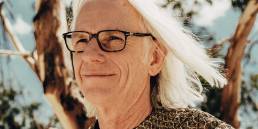“Tea, coffee?” “Rooibos please.” “Sugar?” “Three teaspoons if it’s a big cup. Two and a half if it’s a small cup”
“Heard melodies are sweet, but those unheard are sweeter”. John Keats’ iconic poem, Ode on a Grecian Urn, captures this immortal expression which finds a solid pit-stop at the sound of the name Nokuthula “Noks” Ledwaba. Keats’ expression distinguishes between the seen and unseen, reality and imagination, music and art. One look at the striking features of Ledwaba and the art is unmistakable. She’s a striking beauty whose seen yet unheard melody is sweet to the core. As she sips her tea on a crisp morning in the epitome of African suburbia, Ledwaba’s hair and make-up session seems effortless for a naturally striking woman who, in another time, could have very well inspired 2Pac’s much-loved 90’s lyric ‘Some say the blacker the berry, the sweeter the juice/I say the darker the flesh the deeper the roots”.
The real beauty of Ledwaba though lies beneath her arresting physical features. The secret is in her calm character. According to Phumzile Simelane Kalumba’s, Jabulani: A Dictionary of South African Names (Modjaji Books, 2018), “Nokuthula” translates as “Mother of quietness/peace” – indeed, befitting. Not surprisingly, Ledwaba has a sound appreciation for the significance of her name as she says, “Your name says a lot about your path. Your name becomes your shield”. Similarly, in Michelle Obama’s memoire, Becoming (Penguin, 2018), Obama asserts, “Your story is what you have, what you will always have. It is something to own.” Ledwaba has not only used her name as a shield in an industry which would rather associate an artist with controversy than with their work, but she has also protected her name by assuming the posture of a true force of a woman – a woman who understands that the legacy which will one day carry her name, is a story being developed at every moment. Nokuthula Ledwaba has in her own peaceful demeanour, earned the right to be described as a force of unassuming power.










During my first sit-down as Editor-in-Chief of thebar. magazine, I remained in constant awe at the level of awareness Ledwaba had, not only of herself, but also for the timing of her life. Her spirit seemed so anchored in something greater than herself, that one could not help but appreciate the extent to which she expresses gratitude for the present moment – a true mark of awareness.
Ledwaba’s career began with a specific pace that she chose to utilise. In alluding to her role on Rhythm City for example, she explained her approach for the successful portrayal of Thsidi Kuse by highlighting, “The thing is, I wanted to do well and I needed to learn as fast as I could or else it would swallow me…I learnt very quickly [and that is what] set me apart”. Ledwaba later understood that the fast pace at which she chose to develop into this character was not necessarily an ideal strategy for all seasons. This was spurred on by her ability to abandon the security of a predictable salary and surrender to an unknown that she chose to do as per Ralph Waldo Emerson’s guidance when he wrote, “Adopt the pace of nature, her secret is patience.”
As would be the case with the tough pill to swallow that is patience for many. Hers was tested during her pregnancy when she resigned from Rhythm City in search of something more. Ledwaba found herself expecting the unexpected in every sense. The pace at which she approached life now depended on playing a role that was bigger than that confined in the lines of a script – motherhood. This period of pause in her career and focus on family, helped her solidify the type of woman she wanted her child to be proud of to call “mother” – a mother dedicated towards restoring safe spaces for women in the local TV and film industry which to some degree, still keeps mum on the prominence of sexual harassment. While reflecting on this, she stated, “It’s very risky for an actress like me to be speaking out but I don’t think the Universe gives you a choice where you can sit back and do nothing. If you’re a woman, you never stop fighting. You fight until the very end.”
This period of pause enabled a shift in her career where understanding the purpose of the roles she played now became more important, “Every single role that I’d played had been a seed that was growing and becoming something great”. This approach led to Ledwaba to succeed recent Academy Award recipient, Cicely Tyson, in a role for The History Channel’s Roots. The recognition that followed ultimately led to her role in Mzansi Magic’s successful Abomama – a career path that she later appreciated for the priceless lessons it afforded her. Ledwaba meets thebar. at a time in her career journey where she realises the “why” during her “when”. In no rush to pursue and ace the next audition Ledwaba is at the point of “finding her own pace in a world addicted to fast”, just as Catherine Blyth outlines in her book, On Time (Harper Collins, 2017).
Ledwaba’s peaceful demeanour has sustained her in an industry which demands the loudest parts of her – a demand which has only helped her confirm what she’s come to know as her power – that powerful peaceful stillness as she shares, “When I was younger, I used to struggle with wanting to be as loud as everybody else. Getting older has enabled me to embrace the stillness and know that I’m at my most powerful when I am still. It’s made me a better performer, a better person, a better artist. The art is within and that’s what makes us unique.”
Photographed by the young talent that is Andile Buka, Nokuthula fearlessly directs us into December in a manner which reflects the true meaning of the saying, “When you dance to your own rhythm, life taps its toes to your beat”.
thebar. Magazine
thebar. is an online magazine, concerned (read: obsessed)
with the local and international film industries.
Our purpose is to elevate these industries and their leaders
by showcasing high quality, breakthrough content which
elicits a strong response from those working inside
the industry and outside it.



